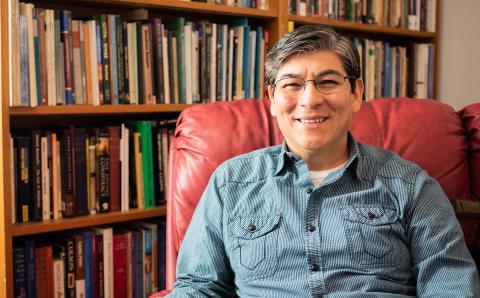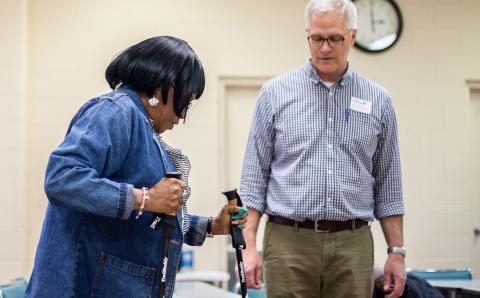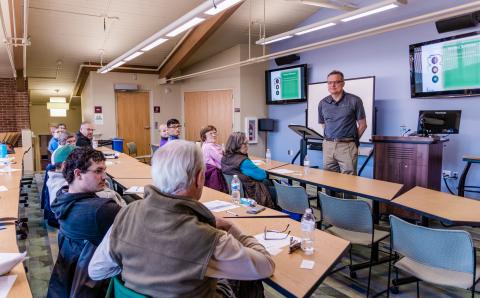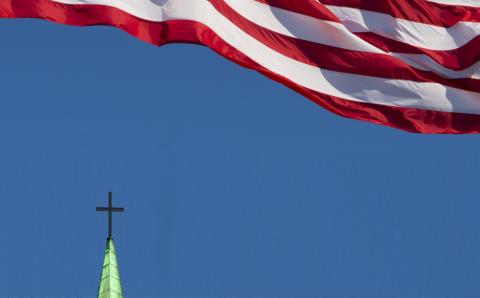Synod 2019 took up much of what the Synod Review Task Force recommended, altered some of the recommendations, and rejected a few of them. (For what the Task Force asked for, see Agenda for Synod 2019, pp. 445-468)
Here’s what will be new to future synods, as adopted by Synod 2019:
- a volunteer on-site mentor/guide to synodical procedures for young adult representatives and ethnic minority persons
- orientation for all(not just first-time) delegates and advisers prior to the convening session of synod
- firm adjournment time (possible deferment of unfinished items on the agenda to the following synod or to the Council of Delegates)
- prayer would be central to worship and become a more intentional feature of synod’s work sessions
- no more than two major study reports will be on the agenda in a given year
- executive session decisions should include a recommendation regarding what is to be included in the public record
- new rules about what kind of amendments are allowed; when and which kinds of motions are up for debate before a vote, how the chair is challenged, and so on (good thing there will be orientation for all to review these kinds of procedures!)
- a basic review of the Rules for Synodical Procedure will be included in the training of officers
- a definition and descriptions of synod will be added to the Rules for Synodical Procedure
- intentional opportunities for purposeful dialogue (seven different considerations for this)
- improved connection between synod and classes and churches (five different methods listed)
- a parliamentarian appointed each year by the program committee to help synod follow the rules synod has set out
- more extensive training for all delegates prior to synod with online and printed materials that cover rules and best practices (plus on-site engagement with training materials led by trained educators before synod begins)
- training of advisory committee chairs and reporters (points to include synodical rules, best practices for leading committees, developing reports, and more)
- guidelines to avoid inappropriate use of social media contact with nondelegates during advisory committee meetings and plenary sessions as part of delegate training
- a scheduled rotation of synod locations: Synod will follow a cycle of three annual synods in Grand Rapids (one of those could be at a nearby midwest location such as Chicago) followed by a fourth-year meeting in a different North American location where CRC congregations are clustered (The Task Force had wanted synod to include a note about additional costs for the fourth-year meeting to be drawn from classes without financial hardship, but synod said no.)
- “themed agendas” and/or “themed synods” could be recommended periodically by the Council of Delegates
- training and orientation for delegates to better understand the power with which they are privileged, especially with regard to gender, ethnicity, position, and age (this will be biblically and theologically grounded such as what is articulated in “God’s Diverse and Unified Family”)
- speeches must be no longer than three minutes per person during plenary deliberation(exceptions are possible for someone for whom English is a second language or who may require interpretation services)
Here’s what’s “encouraged:”
- classes (regional assemblies) develop/maintain policies through which the classis would provide remuneration to delegates who are financially disadvantaged through service to synod.
- classes send one or more delegates to synod for two consecutive years, if possible, to build continuity from synod to synod
- each classis to include at least one woman or one ethnic minority person in its delegation of one minister, one elder, one deacon, and one other officebearer to synod
Here’s what’s not changing:
- no new distribution date of synodical study committee reports (Classis Hamilton asked for these to be sent Sept. 15 instead of Nov. 1, but synod said no since it cuts the time committees have to do their work and most classes meet in September so the earlier date wouldn’t help them cover the material by their meeting date)
- No delegate registration fee (The Synod Review Task Force had recommended this, but synod said no)
- Synod will continue to have four elected officers (the task force had suggested doing away with the second clerk)
- Synod will continue to elect its officers at the beginning of each new synod (The task force had recommended a new process to begin in 2020 of selecting officers at the end of synod to serve the following synod, but synod said no)
Synod 2019 is meeting at Calvin College in Grand Rapids, Mich., from June 14-20. For continuous coverage from our award-winning news team, download the Banner app on your mobile device or follow The Banner Magazine on Facebook or @crcbanner on Twitter. You can find more tweeting by following hashtag #crcsynod. News stories will be posted on The Banner’s dedicated Synod web page several times daily. Unless noted otherwise, all photographs are by Karen Huttenga.









